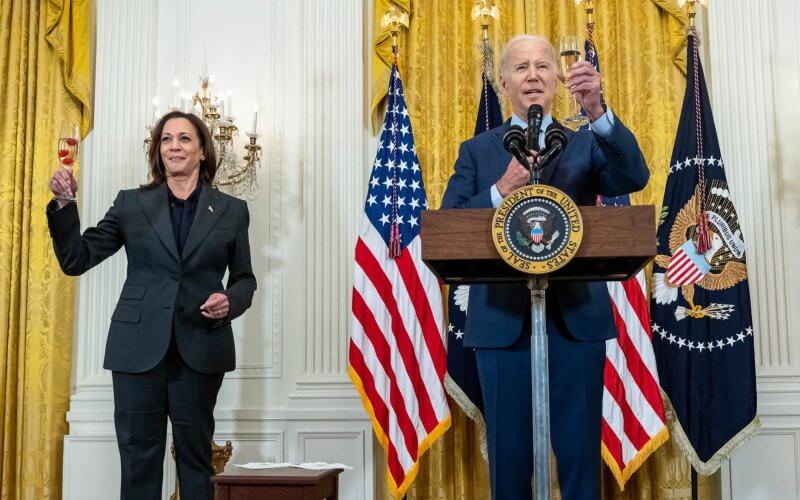By: Jake Smith, Daily Caller News Foundation
The Biden administration and Kamala Harris campaign are reportedly worried that the ongoing Middle East conflict hasn’t calmed down ahead of the U.S. presidential elections in November, The Washington Post reported on Thursday.
The conflict in the Middle East began between Israel and Hamas last October but has since expanded into the broader region and drawn other actors in, including Iran and Hezbollah. The Biden-Harris administration has been pushing for regional de-escalation and a ceasefire in the hopes the conflict would end around election time, but that hasn’t come to fruition — and now the Harris campaign has grown nervous that it will affect Democratic voter turnout on election day, U.S. and campaign officials told the Post.
“It’s a huge concern. It comes down to people saying, ‘I can’t support anyone who supports a genocide,’” a Harris campaign official told the Post, using a disputed term to describe Israel’s actions against Hamas in Gaza.
Biden-Harris officials have worked tirelessly for months to try to achieve a ceasefire between Israel and Hamas, but that effort has failed as neither side has seemed interested in a deal. Israeli forces have also recently expanded their military operations against Hezbollah, a Lebanon-based terrorist group that has been attacking Israel since last year.
Israel has similarly traded blows with Iran, which launched nearly 200 ballistic missiles into Israeli territory on Oct. 1. Israel is expected to launch retaliatory strikes sometime in the coming weeks, according to CNN.
The Biden-Harris administration’s ability to maneuver or exert pressure on the conflict has only seemed to become more limited as it has dragged on, and officials are now looking back on what they could have done differently, they told the Post.
“What we did had the effect of endorsing Israel’s military campaign before understanding whether Israel had a viable exit strategy,” Andrew Miller, a former State Department official who recently left his role, told the Post. “I don’t think there’s anyone in the administration who could say with a straight face Israel had a clearly defined end-state.”
The Harris campaign has become worried about losing Democratic support over the conflict and the continued U.S. support of Israel, officials told the Post. The concerns are especially deep in Michigan, a crucial swing state with a high Muslim and Arab population.
Harris’ advisers initially believed that the vice president had distanced herself far enough from Biden’s approach to the Israel-Palestinian conflict — given that she has seemingly been more sympathetic to the Palestinian issue and sterner toward the Israeli government — which they hoped would translate to more support from Muslim and Arab demographics, according to the Post. But as the conflict has dragged on, it’s been more difficult to garner that support.
And internally, there’s reportedly doubt among top Biden officials that they can move the needle towards regional de-escalation before Biden leaves office.
“No deal is imminent,” one U.S. official told The Wall Street Journal in September. “I’m not sure it ever gets done.”
The Harris campaign and State Department did not immediately respond to a request for comment.
Related Story: Blinken Reportedly Holding Back on Presenting Post-Gaza War Plan Until After Election









